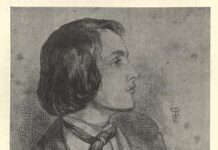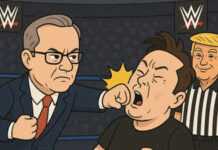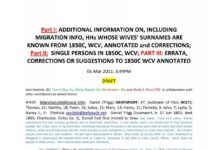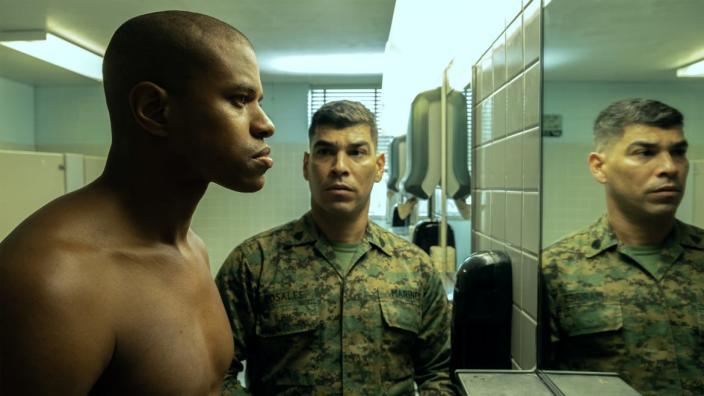/cloudfront-us-east-1.images.arcpublishing.com/pmn/5X7SDCDLX5AJNH4YQ4YDWBKSSQ.jpg)
Earlier this month, a Mass was offered to celebrate the union of a same-sex male couple in Bologna, Italy. On the same day, the bishop of the Diocese of Worcester, Massachusetts, prohibited a high school from identifying itself as Catholic because it displayed a rainbow flag during Pride Month.
Catholicism is engaged in an internal war over the future of its LGBTQ members. Gay Catholics either can embrace the celebration of Pride, or stay as far away as possible. They can see a brighter, more welcoming future — or hear of their condemnation to hell for engaging in intimate acts.
In 2013, Pope Francis said: “If someone is gay and he searches for the Lord, who am I to judge?” That quote was the beginning of a new era in how the Vatican discussed the gay Catholic population.
In the wake of the 2016 Pulse shootings, Father James Martin — a Philadelphian by birth and a Jesuit by practice — fashioned an international ministry to sexual minorities, first by his response to the massacre (stating in a video message that Catholics needed to “stand in strong and public solidarity” with the LGBT community), and then by writing the game plan for doing so with his book Building a Bridge. In the years since the publication of the book, Martin has expanded the ministry to include international speaking engagements, a website, and national conference. Martin’s ministry has received the blessing of Pope Francis, who commended his pastoral zeal and desire to be close to people.
So the church is making progress, right?
Well, maybe not. A another sizable contingent of church leadership has ramped up public attacks on the gay community in the wake of the Supreme Court Obergefell decision in 2015, which legalized civil gay marriage. Pride celebrations, in particular, have been a source of outrage, with numerous Catholic leaders calling these events inappropriate. Bishop Thomas Tobin of Providence, R.I., said these gatherings engage in “promoting a culture contrary to Catholic faith.”
Taking matters one step further, the group Catholic Vote recently embarked on a national campaign titled “Hide the Pride,” with a goal of “checking out” all LGBTQ-related books from public libraries to keep children from reading them.
Corners of Church leadership are contributing to the aggressive, often threatening dialogue. Church Militant, a lay apostolate that purports to present news “through an authentic Catholic lens,” refers to Father Martin as a “sodomy-pushing Jesuit,” while Life Site News is currently asking readers to sign a petition telling the secretary of defense that Pride Month is making our country weaker.
Yet there are reasons to be cautiously optimistic. The cardinal of Munich has approved of blessing same-sex unions. Luxembourg Cardinal Jean-Claude Hollerich called for a change in the church’s teaching on homosexuality earlier this year, specifically stating the church’s assessment of gay relationships as being sinful was incorrect. The recent elevation of San Diego Bishop Robert McElroy to cardinal in May puts one of the most gay-friendly bishops in America in a position to shape policy and elect the next pope. And the Catholic Theological Society of America, the largest professional society of theologians in the world, this month issued a statement calling for church leaders and government officials to reconsider any policy positions that may have contributed to LGBTQ hate.
» READ MORE: Why I’m finally done with the Catholic Church | Opinion
Here in Philadelphia, a change in leadership might create a more receptive ear to the needs of LGBTQ Catholics. Archbishop Nelson Pérez recently sat down with a group of gay Catholics to discuss how the church might better hear and address their needs. Such an assemblage, and more importantly a demonstrated willingness to listen, represents a different approach than that of past Philadelphia church leadership.
So what is the garden variety gay Catholic supposed to make of these mixed signals and conflicting voices? I have wrestled with this question myself. Perhaps the best answer is to let the discussion flow, watch, and — most importantly — speak up on a local level. In holding this conversation publicly, we can only hope for a more welcoming seat at the table, and a reexamination of the traditional approach to ministry to the gay Catholic.
Karl Miller is active in both faith and politics in Chester County. His writing has appeared in America Magazine, the Philadelphia Inquirer, and Catholic Philly.








